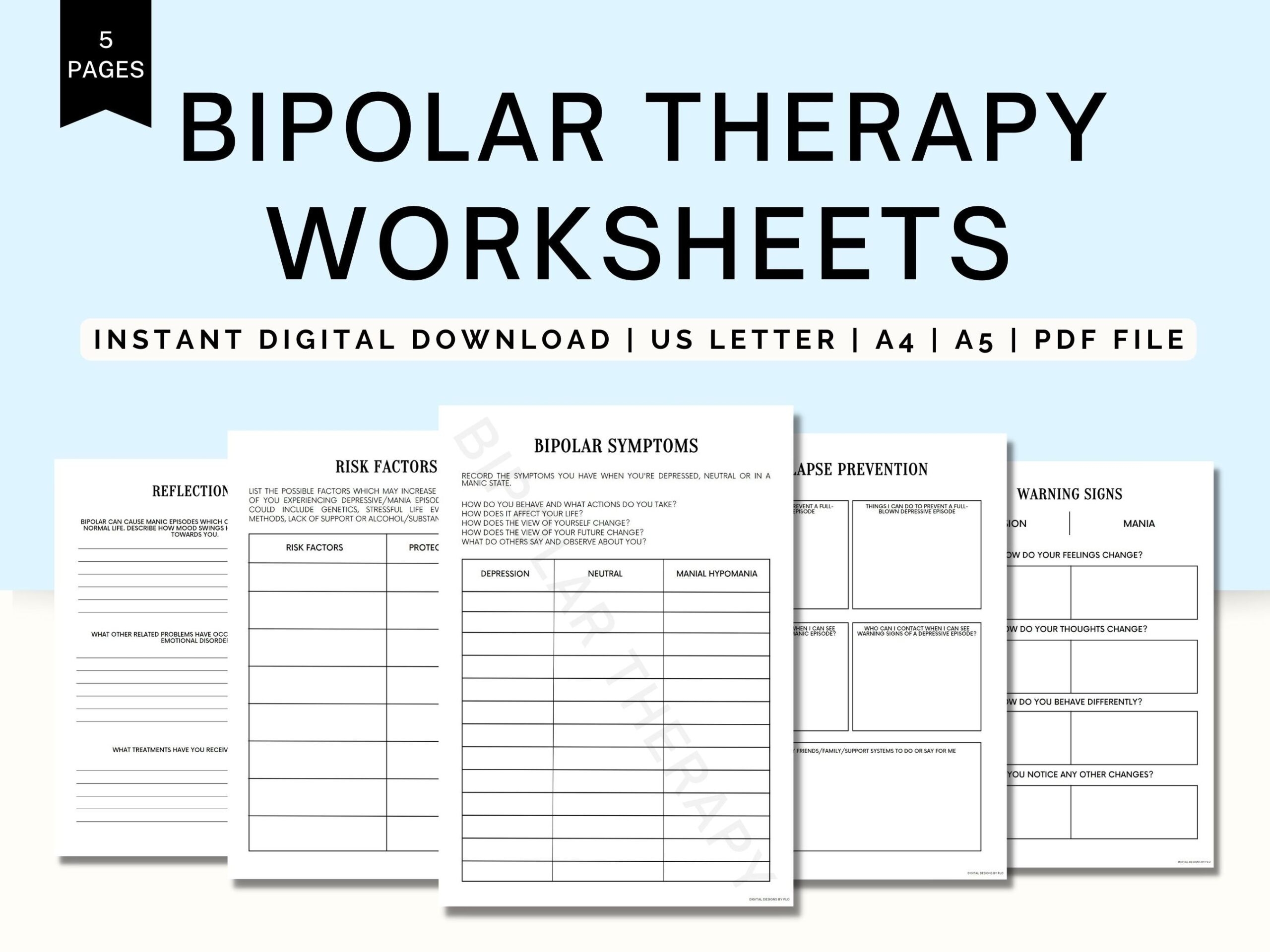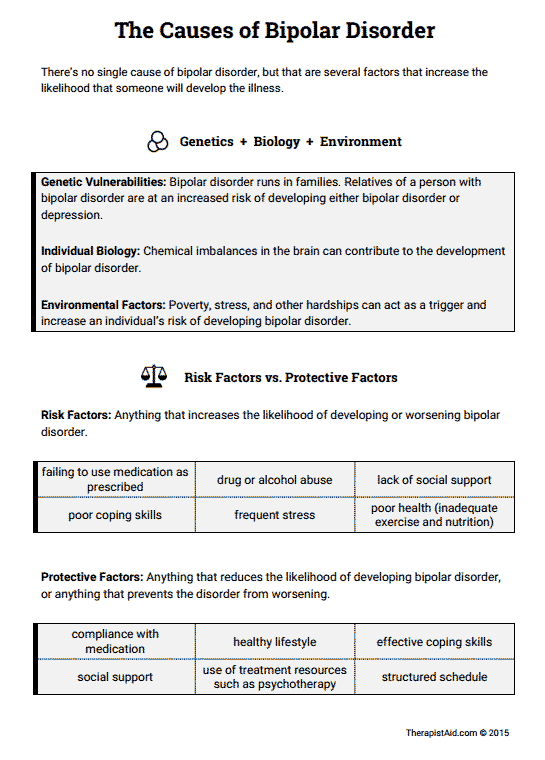Bipolar disorder is a mental health condition characterized by extreme mood swings, including episodes of mania and depression. Managing bipolar disorder can be challenging, but using worksheets as a tool can help individuals gain insight into their emotions and behaviors. These worksheets can be used in therapy sessions or as self-help tools to track mood changes, identify triggers, and develop coping strategies.
1. Mood Tracking: One common type of bipolar worksheet is a mood tracker. This tool allows individuals to record their daily mood, energy levels, and any significant events or triggers. By tracking their moods over time, individuals can identify patterns and gain a better understanding of their bipolar symptoms.
2. Thought Records: Thought records are another helpful worksheet for individuals with bipolar disorder. These worksheets encourage individuals to challenge negative or distorted thoughts that may contribute to mood swings. By identifying and reframing these thoughts, individuals can learn to manage their emotions more effectively.
3. Coping Skills: Coping skills worksheets can help individuals build a toolbox of strategies to manage their bipolar symptoms. These worksheets may include activities such as deep breathing exercises, mindfulness practices, or positive self-talk. By practicing these coping skills regularly, individuals can improve their ability to regulate their moods.
4. Triggers and Warning Signs: Worksheets that focus on identifying triggers and warning signs can help individuals anticipate and prevent mood episodes. By recognizing early warning signs of mania or depression, individuals can take proactive steps to manage their symptoms and prevent more severe episodes.
5. Goal Setting: Goal setting worksheets can help individuals with bipolar disorder set realistic and achievable goals for themselves. By breaking larger goals into smaller, manageable steps, individuals can maintain a sense of accomplishment and motivation, even during challenging times.
In conclusion, bipolar worksheets can be valuable tools for individuals seeking to manage their symptoms and improve their quality of life. Whether used in therapy or as self-help tools, these worksheets can help individuals track their moods, challenge negative thoughts, develop coping skills, identify triggers, and set goals. By incorporating these worksheets into their daily routine, individuals with bipolar disorder can gain insight into their condition and develop strategies to live well with this challenging mental health condition.

